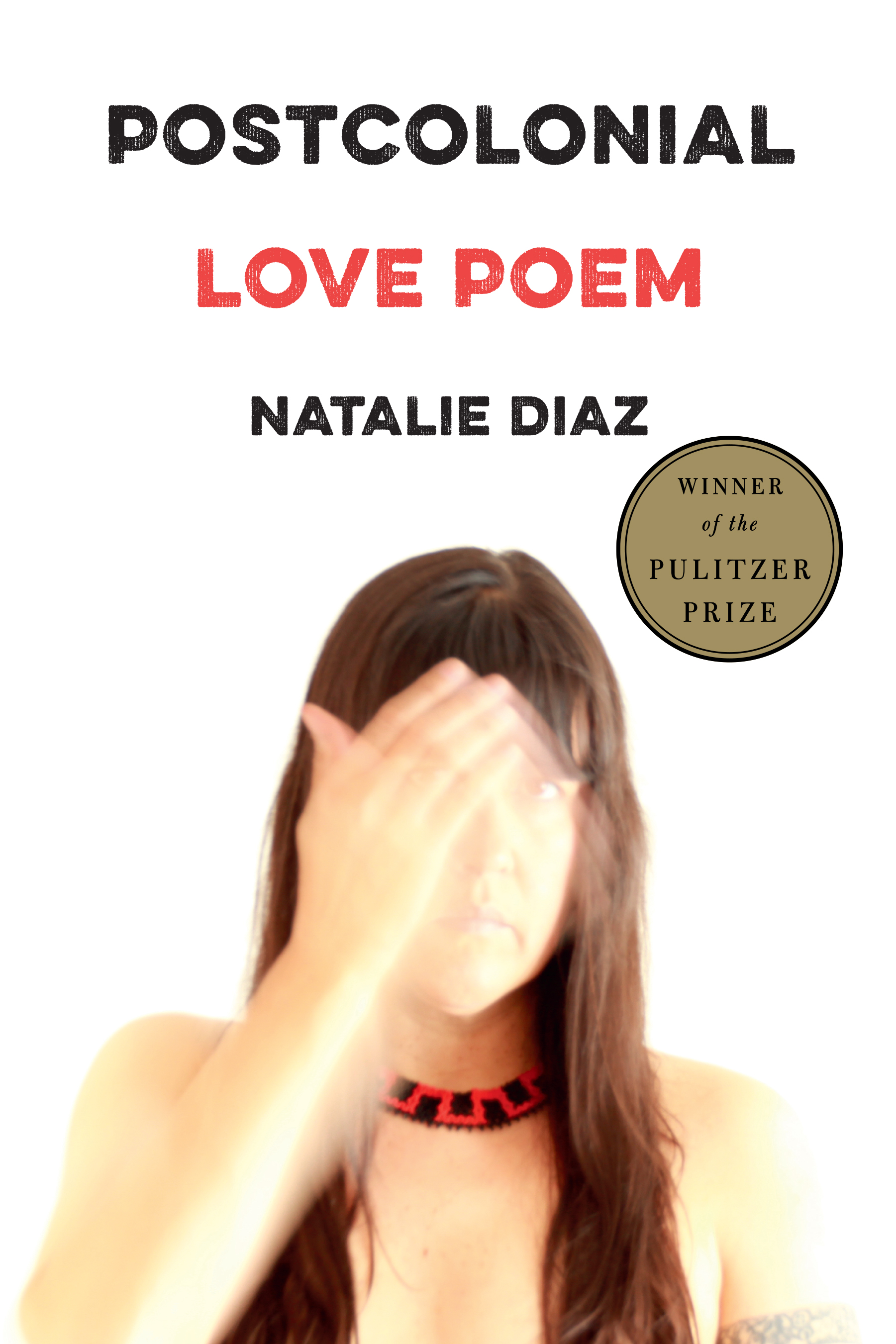Postcolonial Love Poem is an anthem of desire against erasure.
Natalie Diaz’s brilliant second collection demands that every body
carried in its pages—bodies of language, land, rivers, suffering
brothers, enemies, and lovers—be touched and held as beloveds. Through
these poems, the wounds inflicted by America onto an indigenous people
are allowed to bloom pleasure and tenderness: “Let me call my anxiety, desire, then. / Let me call it, a garden.”
In this new lyrical landscape, the bodies of indigenous, Latinx, black,
and brown women are simultaneously the body politic and the body
ecstatic. In claiming this autonomy of desire, language is pushed to its
dark edges, the astonishing dunefields and forests where pleasure and
love are both grief and joy, violence and sensuality.
Diaz defies the conditions from which she writes, a nation whose creation predicated the diminishment and ultimate erasure of bodies like hers and the people she loves: “I am doing my best to not become a museum / of myself. I am doing my best to breathe in and out. // I am begging: Let me be lonely but not invisible.” Postcolonial Love Poem unravels notions of American goodness and creates something more powerful than hope—in it, a future is built, future being a matrix of the choices we make now, and in these poems, Diaz chooses love.
This book won the Pulitzer Prize for poetry, and wow I can see why. I had already read a couple of the poems that had been shared on tumblr, and I loved her writing. She's so so good: passionate and angry and grieving and heartfelt and poetic and in love; a master of her craft. This is a short book, but I had to put it away for a couple of days instead of reading it in one sitting because it's so intense. It will stay with me for a long time. In a classic "oh, Michelle" I don't know what I expected given the title way, I was somewhat surprised by the sheer amount of explicit poems about e*ting a woman 0ut in the most poetic, beautiful language. Every couple of poems it was like, oh another one, godspeed Natalie. Although this does raise a point I've read before: we always expect women's poetry to be purely autobiographical, while allowing men to be seen as artists who write whatever they want and are respected. It may very well be that these poems aren't all strictly autobiographical. They all feel deeply personal, though, regardless of whether or not they actually happened in real life.
Anyway, I loved this and recommend it highly, although of course the poems are often difficult to read (some topics covered include missing & murdered indigenous women, water protestors, America's anti-indigenous history and mentality, etc.). Themes I kept seeing: green, bulls/horns, the land/desert, rivers/water...
Score: 5 out of 5 stars
Read in: April 28-May 2
From: McNally-Jackson, LaGuardia airport branch
Status: keep
Cover notes: The cover features Natalie Diaz herself. She appears to be obscuring her face with her hand, but if you keep looking you'll see one of her eyes peeking out, locked directly on the viewer. Both obscured/hidden and watching. She appears to be wearing indigenous jewelry. I think the cover goes well with the tone of the poetry.


No comments:
Post a Comment